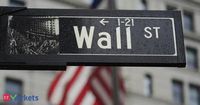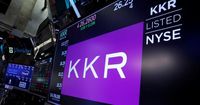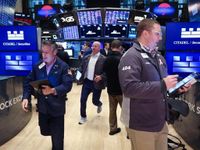U.S. stock markets experienced a significant downturn on April 10, 2025, as investors reevaluated the implications of President Donald Trump's recent tariff decisions. The Dow Jones Industrial Average plummeted by 1,510.44 points or 3.72%, closing at 39,098.01. Meanwhile, the S&P 500 and Nasdaq also saw steep declines, falling 232.72 points (4.26%) to 5,224.08 and 864.04 points (5.05%) to 16,260.93, respectively.
This dramatic reversal came less than 24 hours after markets had surged following Trump's announcement to freeze most of his new tariffs for 90 days, a move intended to alleviate tensions among trading partners. The S&P 500 had recorded its largest single-day percentage gain since 2008 on April 9, while the Nasdaq enjoyed its biggest one-day jump since 2001.
Despite this temporary relief, traders quickly shifted focus back to the ongoing trade war with China. Trump raised tariffs on Chinese imports to 125% from an earlier 104% level, following Beijing's imposition of an 84% tariff on U.S. goods in retaliation. "Any pullback today would be very normal after a really big move like yesterday's," said Larry Tentarelli, chief technical strategist at Blue Chip Daily Trend Report. He noted that profit-taking was expected in the wake of the previous day's gains.
The European Union also responded to Trump's tariff announcements, agreeing to pause plans for counter-tariffs on U.S. goods, which were set to take effect on April 15. European Commission President Ursula von der Leyen remarked, "We want to give negotiations a chance," but warned that counter-tariffs could be reinstated if talks did not yield satisfactory results.
As the market reacted to these developments, the U.S. House of Representatives passed a budget plan aimed at extending Trump's 2017 tax cuts, further complicating the economic landscape. Declining issues outnumbered advancers by a staggering 5.83-to-1 ratio on the NYSE and by 3.98-to-1 on the Nasdaq. The S&P 500 recorded no new 52-week highs and three new lows, while the Nasdaq Composite saw eight new highs and 65 new lows.
In the wake of the market's volatility, analysts are keeping a close eye on the upcoming earnings reports from major corporations, with big banks like JPMorgan Chase set to announce their first-quarter results on April 11. This could provide crucial insights into the health of corporate America amidst the ongoing turbulence.
In international markets, the U.S. dollar weakened against several currencies, including the yen and the Swiss franc, as investors reassessed their positions following Trump's tariff reversals. The dollar fell by 2.36% to 144.24 yen and dropped by 3.57% to 0.83710 Swiss francs. This marked the largest single-day loss against the franc since January 2015.
Meanwhile, labor department data released on the same day showed that U.S. consumer prices unexpectedly fell in March, although experts caution that this improvement may not be sustainable given the pressures from tariffs. The yield on benchmark U.S. 10-year notes also saw a decline, falling 4.1 basis points to 4.353%.
As the trade war with China escalates, concerns are mounting over the potential long-term impacts on U.S. businesses, particularly those heavily reliant on Chinese manufacturing. Apple, for instance, has been identified as one of the companies most exposed to the fallout from the trade war, with significant portions of its production occurring in China.
Deborah Elms, head of trade policy at the Hinrich Foundation, warned that if tariffs reach 145%, it could effectively halt trade between the U.S. and China. "That is going to create serious headaches for many, including companies based in both locations," she said.
In response to the ongoing turmoil, investors are increasingly looking to liquidate their private credit holdings. The private credit market, which has grown to a $1.5 trillion industry, is seeing heightened activity as investors seek cash amid the volatility induced by Trump's trade policies. Greg Ciesielski, a secondary fund manager at HarbourVest, noted, "We are hearing more and more from people seeking liquidity."
As hedge funds rush to offload private debt positions following margin calls, the secondary market is witnessing increased interest. This week, Pantheon announced it had raised $5.2 billion for a fund focused on acquiring private credit stakes, highlighting the robust opportunities available in the secondary market.
Despite the challenges, some analysts remain optimistic about the potential for recovery. "This is going to be a real inflection point for private credit secondary activity," Ciesielski added.
As the situation evolves, all eyes will be on the upcoming negotiations between the U.S. and its trading partners, particularly China. Trump's administration has indicated its willingness to engage in talks, but the outcome remains uncertain. The president stated, "We would love to be able to work with Beijing again," emphasizing his personal ties with Chinese President Xi Jinping.
In the meantime, the financial markets will continue to react to the shifting landscape, with investors bracing for what could be a tumultuous few months ahead. The interplay of tariffs, corporate earnings, and international relations will undoubtedly shape the economic environment as the year progresses.







